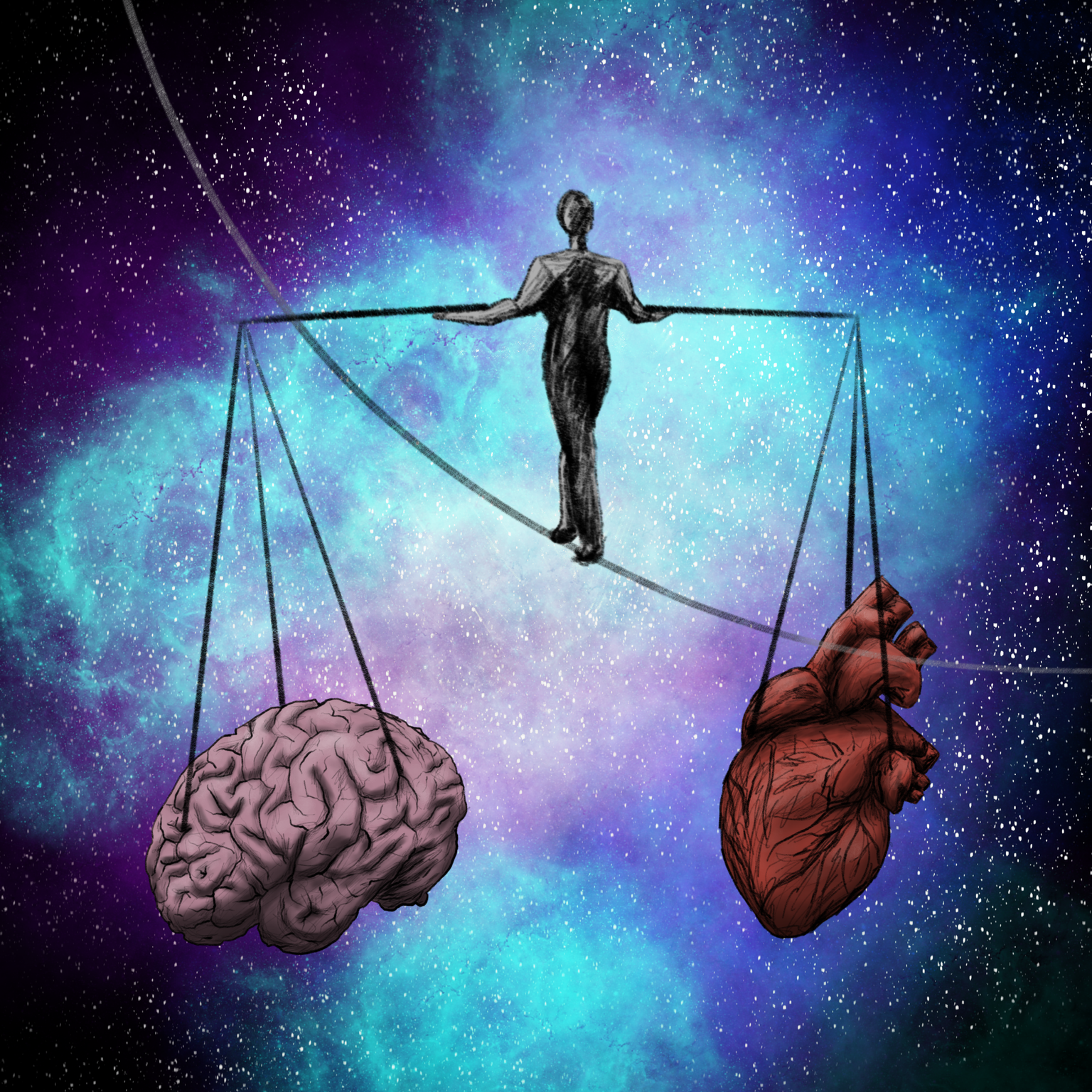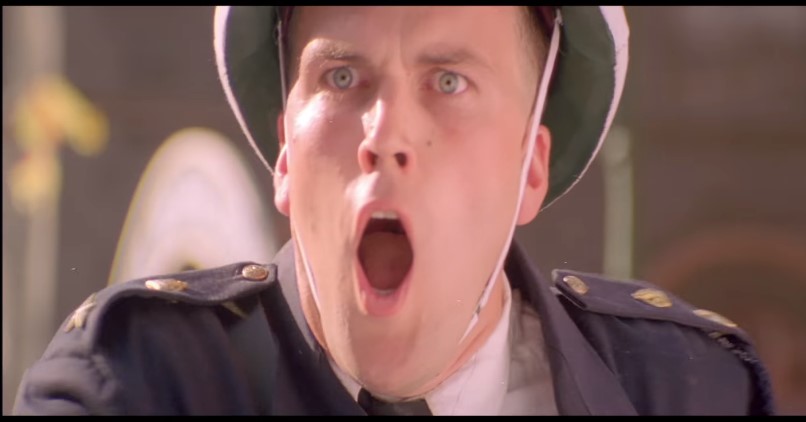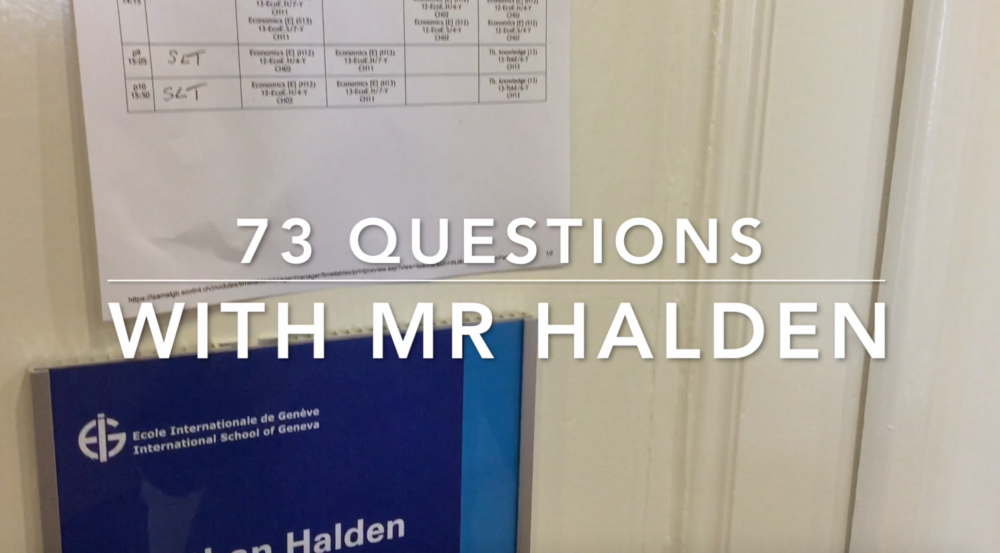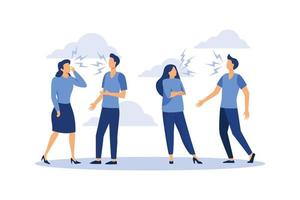By Anna Boulet-Alips, Year 11
We have recently interviewed Ms. Stephanie Kissner, a teacher at LGB’s Middle School. In this interview, we discussed her life, her philosophy, and the impact of philosophy on children and adults.
So, Ms. Kissner, you grew up in Boulder, Colorado to Swiss and German parents. You were an undergraduate at the University of Boulder, studying International Affairs. You then got your master’s degree in Educational Leadership and your teaching license at Colorado State University. Afterward, you did some management work and became a flight attendant for 3 years all the while doing some impressive volunteer work in schools. Eventually, you decided to go back to school and become a teacher. You taught in high school in Colorado and Bogota, Colombia. You then came to LGB and were assistant principal for 5 years. But you missed teaching too much and decided to get back to it! Now, this is your 23rd year at this school, and you currently teach English, humanities, and philosophy in years 7 and 8 FBP. Wow!
We’re going to start off with a couple of questions from The Proust Questionnaire. For those who don’t know, The Proust Questionnaire is a set of questions answered by the French writer and philosopher Marcel Proust, and often used by modern interviewers. Then we’ll continue with more personal questions specially written for you!
Try to answer these Proust questions with the shortest answer you can come up with:
What do you consider your greatest achievement?
“I think my greatest achievement is having found myself, and being myself.”
What is your idea of perfect happiness?
“I think perfect happiness is the even flow of joy and learning in your life.”
What is your favorite occupation?
“Speaking with friends and having a coffee”
What is your most marked characteristic?
“Probably being frank”
What is it that you most dislike?
“I have a very hard time with people or with systems that don’t show integrity”
What is your greatest fear?
“Sharks!”
What is your greatest extravagance?
“Shoes!”
Which living person do you most despise?
“I don’t really like the word “despise” though it’s very strong, I do know that there is somebody that I probably wouldn’t want to be in the same room with.”
What is your greatest regret?
“To be honest I’m not sure that I do have a real regret, because everything that I’ve done makes me who I am today, even things that I’m not happy about or I’ve been disappointed in. So maybe just making sometimes bad choices, but ultimately these things have helped me learn.”
Which talent would you most like to have?
“I would love to be able to sing on key! Even singing happy birthday is brutal”
Where would you like to live?
“I would like to live anywhere where I can be near people who are good people and can make me happy. I’m very adaptable.”
What do you regard as the lowest depth of misery?
“Not having empathy for other people.”
What is the trait you most deplore in yourself?
“Probably not being kind enough to myself.”
What is the trait you most deplore in others?
“The same thing. People who don’t believe enough in themselves, who don’t give themselves enough credit.”
What do you most value in your friends?
“Integrity, kindness, honesty, and generosity.”
Which living person do you most admire?
“Oh my! I would say maybe at this point, not a person, but a type of person. It would be somebody who is seeking a better life somewhere else, it could be a refugee, but it could be anybody. Because that is one hard thing to do and they’re often pushed back.”
What do you consider the most overrated virtue?
“I don’t know that I have one that is overrated… well, I wouldn’t necessarily hold it as a virtue but physical beauty. I think it is looked upon as some amazing thing but it is definitely overrated.”
Which words or phrases do you most overuse?
“Time flies when you’re having fun! Definitely!”
If you could change one thing about yourself, what would it be?
“Treating myself with more kindness.”
How would you like to die?
“In my sleep!”
If you were to die and come back as a person or thing, what do you think it would be?
“I would like to come back as somebody who has touched a thousand lives. But, if I couldn’t control it, maybe as a turtle.”
What is your motto as a teacher?
“To teach is to touch the future.”
What is your motto as a human being?
“Be kind.”
If you had one minute to say something to the whole world, what would it be?
“Holy moly! Maybe it would be something like: you can make a difference, and it’s your responsibility to make that difference in the world.”
If you had one last book that you could read again, which one would it be?
“A book that moved me a lot in the last year is a book by Ta-Nehisi Coates, called “Between the World and Me”. It was so moving that I guess if I wanted a book to be moved by again it would be that one.” But I guess If I wanted a book for its beauty, and language I think I would go back to one of Gabriel Garcia Marquez’s books. Probably “A Thousand Years of Solitude”.
What is your biggest dream and have you accomplished it?
“My biggest dream is to make a difference in the world. Unfortunately, that’s hard to measure, so I don’t know if I’ve attained it or not. I like to believe, I’m in the process but you know when you think about things like that you think it’s supposed to be some earth-shattering thing but in fact, it’s all the tiny things you do every day and those just can’t necessarily be measured because you just don’t know.”
What are you most proud of as a teacher?
“My relationships with my students.”
Do you think that changes over the years?
“Yes. As society evolves, students change a little bit – the fundamentals are always there but in terms of needs, communication, things like that that do more a little bit every year. And then obviously I’m not getting any younger, and even though I do believe that patience is one of the good virtues to have, I probably don’t have it all the time and surely not as much as I did when I was just starting my career.”
Why did you choose to become a teacher?
“Chose to become a teacher because I got to a point after university, after my bachelor’s degree that I realized I didn’t want to do a job where I’m just making money for myself or for somebody else. I would like to be able to have a true impact on people. It was like an epiphany, this is what I’m supposed to be doing.”
What do you think is the worst thing humans have developed or brought to this world?
“I would say, a forgetfulness of others and the desire for more. And that desire for more, to me, has distanced people from each other. Because we have developed as human beings, a bunch of really wonderful things – you know technology that is really helpful – but technology that has also promoted the isolation of people even though everybody’s so connected electronically, I think people are becoming more and more isolated from each other and I don’t think that’s positive.”
What is your favorite thing about children as a teacher?
“I love their joy. I just love watching them become who they are, they’re an exploration of themselves and the world around them, it is so beautiful to watch.”
And as someone who is always around different children, every year you get different students, are you able to notice that every student is different from each other?
“Well, I mean I think we are different in many ways but that’s what I was saying earlier I think is that the fundamental base of our needs, the need to be part of a group, the need to belong, the need to feel appreciated, cared about, all of those things change and they come back year after year. I remember years ago when I first told one of my professors at university that I was going to go into international education (and at that time I was working with at-risk students at my high school in Colorado) and he said: are you sure that’s the direction you want to go? and I think his impression of international education was that maybe kids who can go to an international school have access to more things than maybe some of the kids I was working with at that time. The reality is and the response that I gave him is that you know no matter what situation kids are in and granted they have different needs depending on their material situation etc… But I think the fundamental underlying human needs don’t change, and so we all need to feel appreciated, loved, to be supported and encouraged.”
What characteristics that children have would you most like adults to have as well?
“A sense of curiosity, a joy, and I’m not saying that as adults we don’t have joy, we do, but, that kind of running out in the rain, getting soaking wet and thinking that it’s the best thing ever kind of joy, I think we lose a bit of that sometimes with the responsibility that comes with being an adult.”
What is your favorite thing about teaching philosophy?
“You know Philosophy for Children is a wonderful program and it does help young people think by themselves and for themselves and become better critical thinkers. But, it’s true that it’s a community that’s deliberating together and sometimes those moments work better than other moments. But, what I love about doing it is seeing, hearing, being part of some of the profound things that young people can say, can write, can think about, it never ceases to amaze me.”
What is philosophy to you as a person?
“A way of being, a way of thinking about things, seeing things, trying to make sense of things.
How did you start teaching philosophy?
“In 2002, a retired teacher Florence Auvergne Abric and I went to a Philosophy for Children seminar for the weekend and it was amazing, it was transformative and we both brought it back into our classes. She was working with year fives and I was still working with years sevens and eights and so we started by doing it just in our classroom, in our subject areas, and then over time we just started sharing it with other teachers and it just seems like it’s something that has grown across the whole campus and I think across the whole foundation, I’d say tremendously in the last ten years maybe fifteen years it’s surely grown a lot. But it just so happens to be that the two of us went, I don’t even know how I got invited to that, I don’t even remember, I just know where it was at the “Ecole de la Découverte” in Malagnou. It was amazing, and it was just something I loved and have continued to do since then.”
How do you think philosophy can impact students or children in general?
“I think it can help them obviously reflect better on things. I think it can be used in a way to help them understand each other better, and then ultimately to understand themselves better, because the more you can think something through and sometimes I think you need to do that aloud, verbalizing aloud, and that’s an exploration and I think anytime you explore you learn, and then when you explore with other people then you sort of learn in quantum leaps so I just think it has profound impacts on people who do it.”
What can philosophy bring to adults?
“I think philosophy can bring to adults the exact same thing that it does for young people. In fact, a lot of the workshops for philosophy for children are done with adults. So I even spent I think it was a week in Belgium several years back with a group of adults doing philosophy from 9am until 9pm! It was all day full-on, really emotional, really insightful and so I think it can bring the exact same thing to adults. Nowadays, a lot of adults who practice philosophy who do these ‘Communauté de Recherches’ with other people for adults, they’re obviously often at another level and they understand maybe more precisely the kinds of things that they can do within a deliberation to help that deliberation become deeper. However, I think even if you’re not at that particular level – and I’m certainly not – you can still become a better thinker, be more open to the world and just have a better understanding of who you are and how things are, and I think it just opens you up. “
Would you say philosophy is maybe one of your passions?
“Definitely! I mean, I don’t have a regular philosophy activity as one might have for sports or music but I think the whole concept is a passion because of how I believe we need to be interacting with ourselves and with other people as much as we can.”
Are there any questions you would like to be asked? Be honest I know there is!
“I really don’t know. I suppose a question could be something like: What are you going to do to continue to be a better person? and: How are you ever going to know when you’ve made the difference?”
So do you think that one day you’ll have an answer to the second question or do you hope?
“There are moments when I think I’m not making enough of a difference but then when I look back and think what my goal actually was to make the difference in one person’s life. But there were times when I got lost in trying to make a difference in everybody’s world, and then it gets overwhelming, and you start thinking you’re not actually doing anything. So, I think it’s important to know that you’ve made a difference in one person’s life and I wish when people would ask me I could tell this incredible story of how I’ve made the difference but if I go back to what I try to teach to students, just be kind. How just one smile could be the difference in somebody’s life. So, if that’s the reality, then I would hope that I’ve smiled at somebody every day and that that’s made a difference. But then again, you can’t know for certain unless somebody tells you you’ve made the difference. I don’t need anybody to tell me what difference I’ve made or not. But it’s just a reminder to all of us, that we need to show our appreciation to the people we care about, the people we love, the people who are part of our lives, we don’t do it enough.”
Knowing how hard you can be on yourself, and how high your self-expectations tend to be, do you think you’ll ever be fully satisfied with the difference you’ve made or already made?
“I suppose I should be grateful that I’ve had the opportunities I’ve had to make a difference in some people’s lives that I actually know I’ve made some sort of impact in. But, I would probably say no. It’s almost like when you’re riding your bike and you set yourself a goal of riding eighty kilometers in a certain time limit and once you achieve that then you always tend to set yourself a higher goal again, and it goes on. Well, I think it’s a little bit the same thing.”
Do you think it ever stops?
“I hope it never stops. Because if we stopped making a difference in all kinds of people’s lives, then the world would be terrible.”
Thank you to Ms. Kissner for such beautiful responses to the questions!



